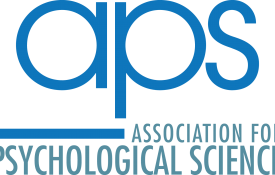-
How to Actually Catch a Liar, According to the New Science of Lie Detection
We naturally detect lies all the time. It could be a dip in our partner’s voice alerting us to the fact that they’re concealing their emotions; a child’s eyes drifting back to the drawer containing a present they weren’t supposed to open; or an implausible story told by a colleague trying to explain why the company’s petty cash has gone missing. Yet we also often fail to detect lies. Why? Researchers have been trying to answer this question for over a century and the liars are still slipping through our fingers. But the latest research may help shine a light on where we’ve been going wrong.
-
Feeling Stuck? Here Are 5 Ways to Jumpstart Your Life.
From the outside, it looked as though Adam Alter was gliding along. At 28, he had earned a doctorate in psychology from Princeton and soon afterward landed a job as a tenure-track professor at the N.Y.U. Stern School of Business. But he felt stuck. Preparing to teach while simultaneously doing research became overwhelming, especially after having just emerged from five intense years of graduate school. And although he was often surrounded by people in New York City, he missed having a close network of friends. He likened it to being trapped on a conveyor belt. “I was making a career for myself,” he said, “but I wasn’t sure if those were the ways I wanted to succeed.” Dr.
-
Chicken Littles Are Ruining America
Sometime around 1970, the American personality changed. In prior decades, people tended to define themselves according to the social roles they played: I’m a farmer, teacher, housewife, priest. But then a more individualistic culture took over. The University of Michigan psychologist Joseph Veroff and his colleagues compared national surveys conducted in 1957 and 1976 and found a significant shift in people’s self-definition: A communal, “socially integrated” mindset was being replaced with a “personal or individuated” mindset.
-

Exciting News from APS Meetings!
APS is excited to announce the merging of Annual Convention and the biennial International Convention of Psychological Science (ICPS) and a new APS Global Psychological Science Summit scheduled for October 2024.
-

New Content From Current Directions in Psychological Science
A sample of articles on the psychology of erectile dysfunction, STEM engagement in informal learning environments, leveraging decision science, rethinking attentional habits, and much more.
-
A Paradigm Shift in How Scientists Study Kids
There is an open secret in the study of child development: Most of what we think we know about how babies develop is actually based on a specific subset of kids—those born to families from Western, educated, industrialized, rich, and democratic (a.k.a. WEIRD) nations. The acronym was first coined in an influential 2010 paper to describe the wildly unrepresentative populations that many psychology studies have long relied on.

